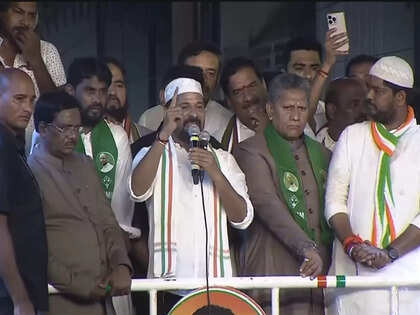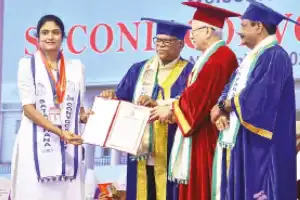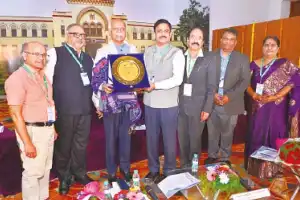Telangana’s BJP leader has launched sharp criticism against the state’s Chief Minister ahead of crucial assembly elections.
N Ramchander Rao, who leads the BJP in Telangana, accused Chief Minister A Revanth Reddy of targeting Muslim voters specifically for the upcoming Jubilee Hills Assembly constituency election scheduled for November 11.
The BJP president claimed that Reddy has transformed into “Revanth Uddin” during his campaign activities, even adopting different headwear to appeal to the Muslim community, which represents about 20 percent of the voting population.
Rao dismissed the Chief Minister’s outreach efforts as pure vote bank politics. He argued that the Congress party has never genuinely respected Muslims but instead treats them as a reliable vote source.
“The real question is whether Congress provides quality education, healthcare services, job opportunities, and proper housing to Muslim citizens,” Rao stated during his interview.
The BJP leader also targeted the BRS party, claiming both political groups ignore 80 percent of Hindu voters while chasing the 20 percent Muslim vote share.
Revanth Reddy had recently defended his decision to appoint former cricket star Mohammad Azharuddin as a state minister. The Chief Minister questioned why Union Coal Minister G Kishan Reddy opposed bringing a minority leader into the cabinet.
During a recent campaign event, Reddy declared that Congress has consistently provided significant opportunities to minority communities. He emphasized the strong historical connection between Muslims and the Congress party.
The Jubilee Hills election became necessary after BRS MLA Maganti Gopinath died from a heart attack in June 2024.
BJP has nominated Deepak Reddy as their candidate for the seat. The BRS party selected Sunita, who is Gopinath’s widow, to contest the election. The ruling Congress candidate has received backing from Asaduddin Owaisi’s AIMIM party.
This electoral battle reflects broader political tensions in Telangana as parties compete for diverse voter segments across religious and community lines.






